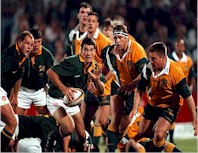Agile Contracts Working Group
Working Group Formed to Produce Reusable Agile Contracts
Posted by Vikas Hazrati on Oct 29, 2008 04:45 AM
Contracts are required to bridge the gap of trust and uncertainty between different organizations thus enabling them to work together. Traditional ‘fixed price, fixed scope and fixed time’ projects do not take the uncertainty in business environment and software development into account. These contracts tend to set up the customer and vendor against each other where, instead of collaboration, time and energy is spent on deciding who should pay for the change. A working group is currently brainstorming on OpenPlans with an aim to produce reusable agile contracts. This would potentially reverse the customer-vendor relationship from confrontation to collaboration.
In the past Alistair Cockburn has listed more than 10 strategies of Agile contracts based on inputs from several people. These include the standard ‘fixed price fixed scope’, ‘time and material’ contracts to the more innovative ones like ‘Incremental delivery with payment on incremental acceptance’ and ‘Indefinite Delivery, Indefinite Quantity’. Martin Fowler talked about projects where they first build trust with the customer and then get to a flexible charging scheme for future projects. Mary and Tom Poppendieck have discussed various contract types and their potential benefits. They also discussed various customer and vendor categories and the factors like culture, country and software type which might affect the contract.
The working group on OpenPlans currently has a work in progress Agile contract titled ‘Money For Nothing, Change For Free’ which places strong emphasis on customer participation. The customer is expected to have a high degree of involvement in prioritizing features, sprint planning, writing conditions for satisfaction of features and sprint review. The contract also has the following clauses set up
* Early Termination (Money for Nothing)- Customer can terminate the contract at the end of any sprint by paying 20% of the remaining contract value
* Change For Free – Customer can add new features at sprint boundaries if items of equal scope are removed from the contract.
The contract also talks about ‘Guarantee of work’ where the vendor guarantees that 80% of the functionality is delivered with high quality as per the agreed upon definition of done and that the vendor may take the risk of late delivery.
The contract development can be tracked on the ‘Agile Contracts’ home page and membership can be requested for contributing to the contract definition.
 Scrum is an Agile development framework that Jeff Sutherland invented at Easel Corporation in 1993. Jeff worked with Ken Schwaber to formalize Scrum at
Scrum is an Agile development framework that Jeff Sutherland invented at Easel Corporation in 1993. Jeff worked with Ken Schwaber to formalize Scrum at 
